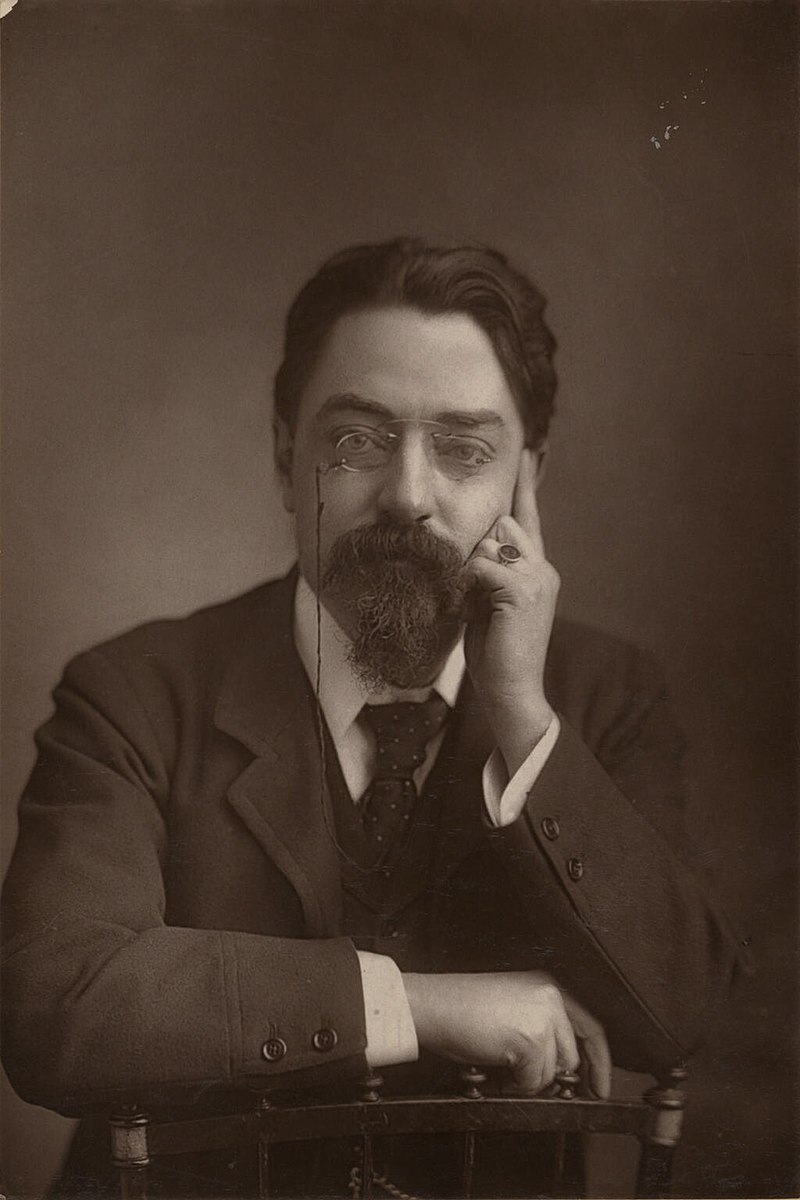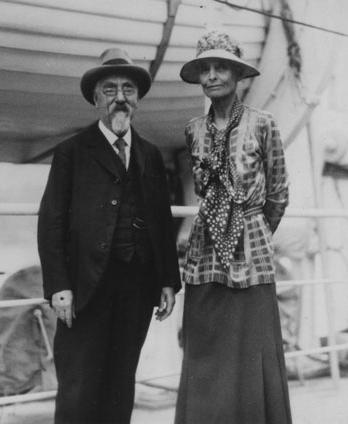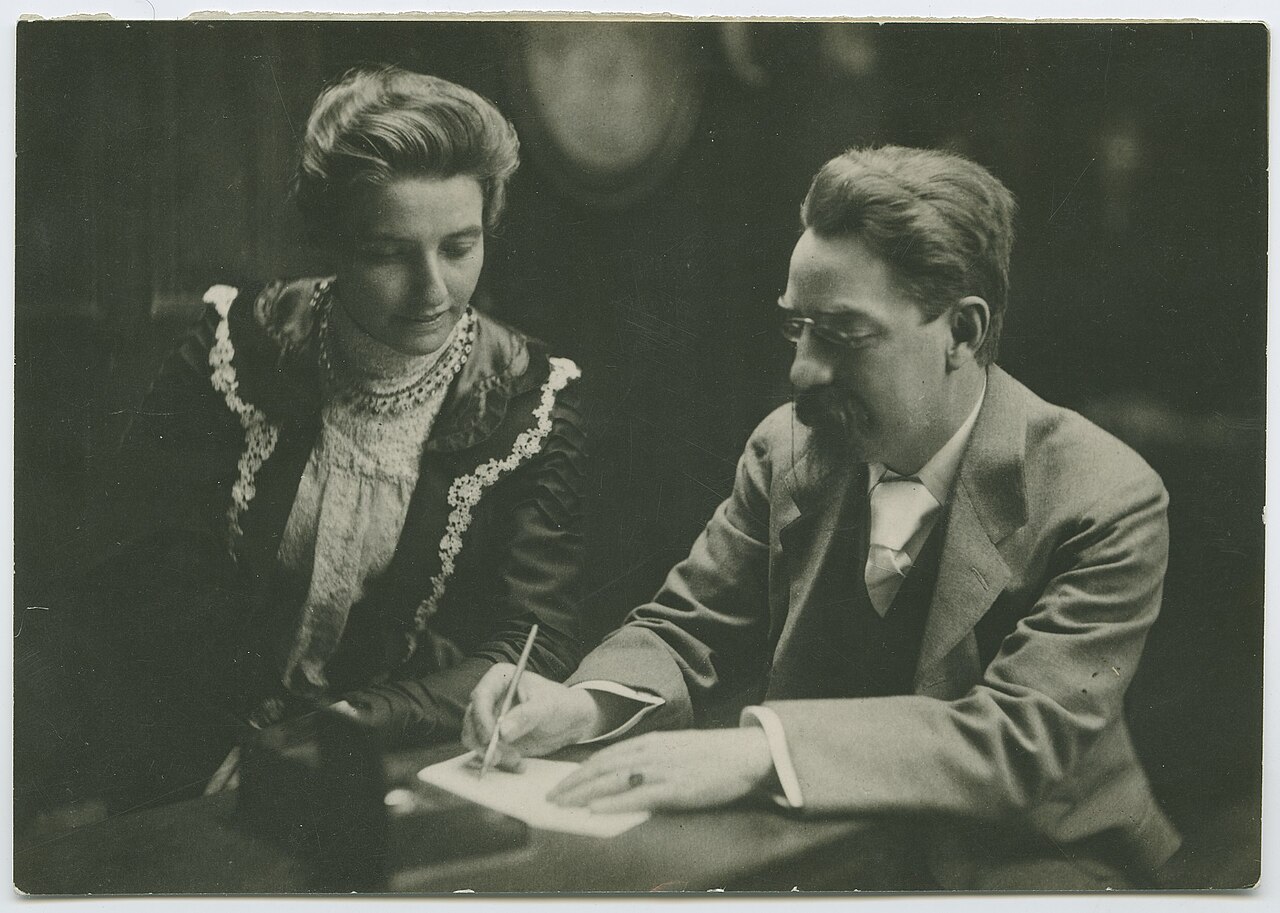<Back to Index>
- Economist and
Co-founder of the London School of Economics
Sidney James Webb, 1859
PAGE SPONSOR

Sidney James Webb, 1st Baron Passfield PC OM (13 July 1859 - 13 October 1947) was a British socialist, economist, reformer and a co-founder of the London School of Economics. He was one of the early members of the Fabian Society in 1884, along with George Bernard Shaw (they joined three months after its inception). Along with his wife, Beatrice Webb, Annie Besant, Graham Wallas, Edward R. Pease, Hubert Bland and Sydney Olivier, Shaw and Webb turned the Fabian Society into the pre-eminent political - intellectual society of England in the Edwardian era and beyond. He wrote the original Clause IV for the British Labour Party.
Webb was born in London to a professional family. He studied law at the Birkbeck Literary and Scientific Institution for a degree of the University of London in his spare time, while holding down an office job. He also studied at King's College London, prior to being called to the Bar in 1885.
In 1892, Webb married Beatrice Potter, who shared his interests and beliefs. The money she brought with her enabled him to give up his clerical job and concentrate on his other activities. In 1895 he helped to establish the London School of Economics, using a bequest left to the Fabian Society. He was appointed its Professor of Public Administration in 1912, a post which he held for fifteen years.
Webb and Potter were members of the Labour Party and took an active role in politics. Sidney became Member of Parliament for Seaham at the 1922 general election. The couple's influence can be seen in their hosting of the Coefficients, a dining club which attracted some of the leading statesmen and thinkers of the day. In 1929, he was raised to the peerage as Baron Passfield, of Passfield Corner in the County of Southampton. He served as both Secretary of State for the Colonies and Secretary of State for Dominion Affairs in Ramsay MacDonald second Labour Government in 1929. As Colonial Secretary he issued the Passfield White Paper revising the government's policy in Palestine, previously set by the Churchill White Paper of 1922. In 1930 failing health caused him to step down as Dominions Secretary, but he stayed on as Colonial Secretary till the fall of the Labour government in August 1931.
The Webbs were supporters of the Soviet Union until their deaths. Their books, Soviet Communism: A New Civilization? (1935) and The Truth About Soviet Russia (1942) give a very positive assessment of Joseph Stalin's regime.
Webb co-authored, with his wife, a pivotal book on the History of Trade Unionism
(1894). For the Fabian Society he wrote on poverty in
London,
the eight hour day, land nationalisation
the nature of socialism, education,
eugenics and reform of the House of Lords.
In the introduction of his 1936 work entitled "The revolution betrayed", Leon Trotsky described Sidney Webb — and his wife Beatrice — as "The most authoritative representation of conservatively pedantic socialism". He went on to characterize their work as "Bolshevism for the cultured bourgeoisie" and "Socialism for radical tourists".
In H.G. Wells's The New Machiavelli (1911), the Webbs, as 'the Baileys', are mercilessly lampooned as shortsighted, bourgeois manipulators. The Fabian Society, of which Wells was briefly a member (1903 - 08), fares no better in his estimation.
In her diary, Beatrice Webb records that
they have, “read the caricatures of ourselves … with much
interest and amusement. The portraits are very clever in a
malicious way.”
She reviews the book and Wells’ character in detail,
summarizing “As an attempt at representing a political
philosophy the book utterly fails …”.
When Beatrice Webb died in 1943, the casket containing her ashes was buried in the garden of their house in Passfield Corner. Lord Passfield's ashes were also buried there in 1947. Shortly afterwards, George Bernard Shaw launched a petition to have both reburied to Westminster Abbey, which was eventually granted. Today, the Webbs' ashes are interred in the nave of Westminster Abbey, close to those of Clement Attlee and Ernest Bevin.
One of the LSE student residences, on Great Dover Street in London, is named Sidney Webb House, in his honor. In 2006 LSE, alongside the Housing Association landlord Places for People, renamed their Great Dover Street Student Residence Sidney Webb House in his honor.
On 13 July 1995, a memorial plaque to Webb was unveiled at 44 Cranbourn Street, close to his birthplace.

